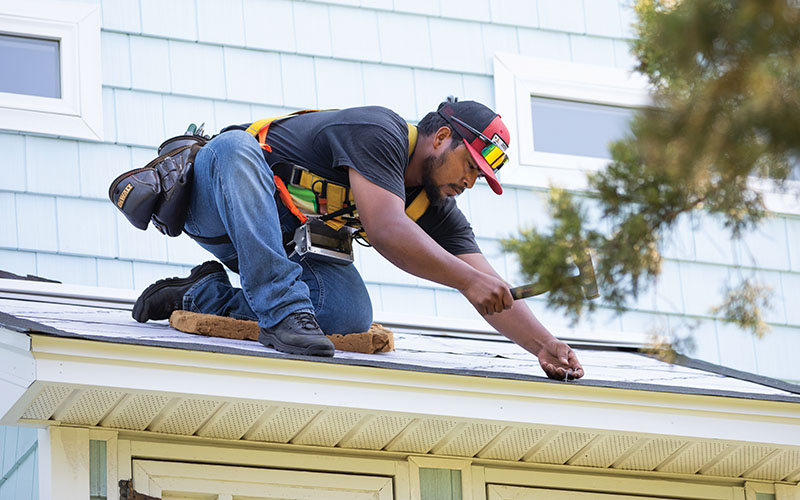Tax season isn’t just a fun time for residents and businesses in North Carolina, it’s also a big piece of the financial puzzle for homeowners associations (HOAs). As complicated as federal and state income taxes may seem to everybody else, they can also provide some twists and turns for HOA board members and are something that need to be kept in mind throughout the year.
In our state, community associations are not required to pay property taxes on common areas like a clubhouse, roads, open fields, things of that nature, as long as the members (homeowners) have the exclusive right of use for those areas. Some associations may have a parking lot that they share with someone else, which wouldn’t be for an exclusive use. Ordinarily this would be taxed, but in all North Carolina counties there is the possibility of filing an exemption form that can be reviewed by officials in consideration of making a piece of common property exempt from taxes.
Timing is everything when it comes to getting such exemptions. Typically, an association can be exempt from property taxes in the year in which it owns the property on January 1st. That said, if an HOA tries to get a property exempt and the property was deeded to the HOA on June 1st, they may be responsible for taxes because they didn’t own the property at the first of the year.
If the HOA does pay property, federal, or state income taxes, they are processed within an HOA’s budget. Depending on the type of community association, this can sometimes look a little different. For example, here in the Cape Fear region we have a number of marina associations on the Intracoastal Waterway. Members of these associations aren’t part of the association by deed like you would have for a piece of property, but rather by membership certificate, so in this case the association will be paying the taxes on all the boat slips and common areas.
Obviously, it’s a good thing when an HOA qualifies for as many exemptions as possible. When tax season comes around, homeowners should look at their HOA’s financial statements; if the HOA is paying taxes on a common property, that might be able to be used on personal income taxes. Of course, always be sure to consult an accountant or tax professional when it comes to your taxes.
The vast majority of associations in North Carolina are incorporated as not for profit organizations; that said, they still have to file federal and state income taxes. A lot of people think HOAs don’t have to file since they are not for profit, but they have to do it every single year, even if works out that their completed returns don’t show them needing to pay any federal or state taxes.
It’s important to understand that what an HOA is getting taxed on is not member assessments, it’s interest income and non-assessment income, clubhouse royalties, that sort of thing.
In terms of filing, HOAs are one of the only entities that can actually elect which type of form to use at the time of tax filing and can choose to use the simplified form 1120H, which is typically for small associations, or use the long form which is the normal corporate return. With the long form, the HOA is showing the income and deductions of expenses like a typical corporation. Generally, that decision is being made based on the HOA’s level of interest of non-assessment income and whether you want to pay a few hundred dollars for an accountant to put together a short form or much more for a detailed long form. Consult your association's CPA to see what tax form works best for your association and the amount that should be budgeted for tax prep.
As you might imagine when it comes to taxes, the devil is in the details.
Mike Stonestreet is a 30-year veteran of the professional HOA management industry who has achieved one of the highest education-based designations in the field, that of Professional Community Association Manager (PCAM). Community Association Management Services (CAMS) has been a leading association management company since its inception in 1991. CAMS is a trusted provider of management services, dedicated to holding themselves to a higher standard of service to the community associations they serve throughout North Carolina and South Carolina. To find out how CAMS can benefit your community or visit www.CAMSmgt.com.
Vantaca’s Balancing Act
Audrey Elsberry
-
May 17, 2024
|
|
Channel, UNC Law School Aid Wilmington Small Businesses
Audrey Elsberry
-
May 16, 2024
|
|
Developers Mark Opening Of $78M Apartment Project At Riverlights
Staff Reports
-
May 17, 2024
|
|
Two Apartment Projects Pitched For Kerr Avenue
Emma Dill
-
May 17, 2024
|
|
As Hurricane Season Heats Up, How Do Builders, Laws Prep Homes For Storms?
Emma Dill
-
May 17, 2024
|
Ocean City Beach was established in 1949 and became the first community in the state where Black people could purchase oceanfront property....

The damage caused by Hurricane Florence in 2018 throughout the region put a bigger spotlight on the need for the construction industry to fa...
The 2024 WilmingtonBiz: Book on Business is an annual publication showcasing the Wilmington region as a center of business.
